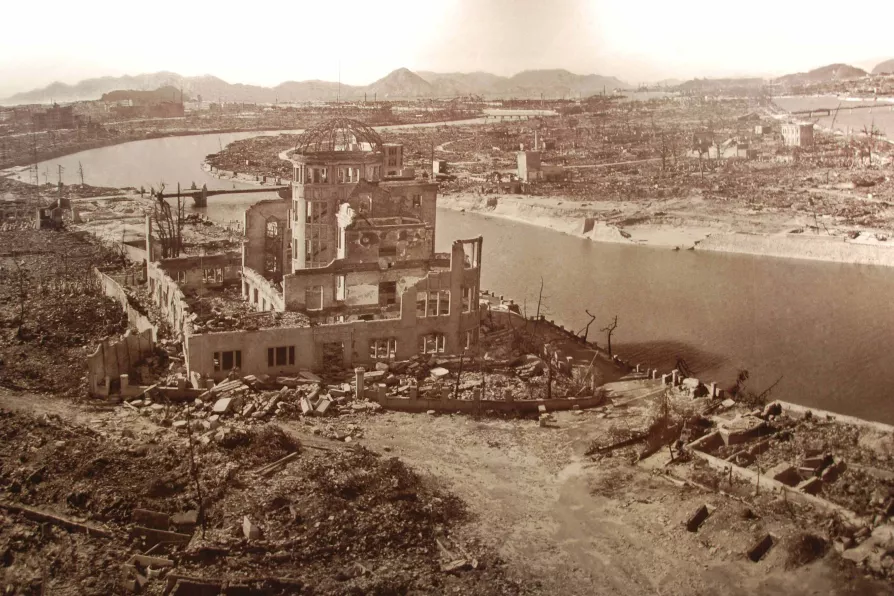RAINER RUPP examines former CIA analyst Larry Johnson’s description of the US operation to kidnap Nicolas Maduro as a tactically successful but strategically disastrous move, with shades of Bush’s disastrous intervention in Iraq

 The complete destruction brought about by the atomic bomb on August 6 1945 at exactly 8.15 am. The building still somewhat standing is the Hiroshima Prefectural Industrial Promotion Hall, one of the very few structures that weren't completely obliterated
[Maarten Heerlien/Creative Commons]
The complete destruction brought about by the atomic bomb on August 6 1945 at exactly 8.15 am. The building still somewhat standing is the Hiroshima Prefectural Industrial Promotion Hall, one of the very few structures that weren't completely obliterated
[Maarten Heerlien/Creative Commons]
IT IS 79 years since atomic bombs were dropped on Hiroshima and Nagasaki. Those war crimes, perpetrated by the US, will never be forgotten; we honour the memory of all the lives tragically cut short, and we pay tribute to the Hibaksha — the survivors — and their work for a nuclear weapons-free world. In their name, we recommit today to achieving the global abolition of nuclear weapons.
And never has this work been more important. We cannot allow the horrors of Hiroshima and Nagasaki to be repeated, yet we seem to be heading inexorably in that direction. There are two major conflicts ongoing which raise the risk of nuclear war or nuclear use.
First, in Ukraine, where the possibility of a conflict between Russia and Nato increases almost daily; more nuclear weapons are being stationed in Europe, with US nuclear weapons scheduled to return to Britain in the near future, and Russian nuclear weapons are now stationed in Belarus as a result.

For 80 years, survivors of the Hiroshima and Nagasaki atomic bombings have pleaded “never again,” for anyone. But are we listening, asks Linda Pentz Gunter

JEREMY CORBYN reports from Hiroshima where he represented CND at the 80th anniversary of the bombing of the city by the US













